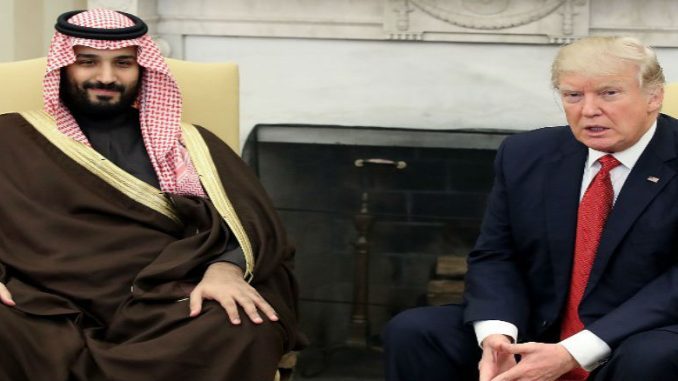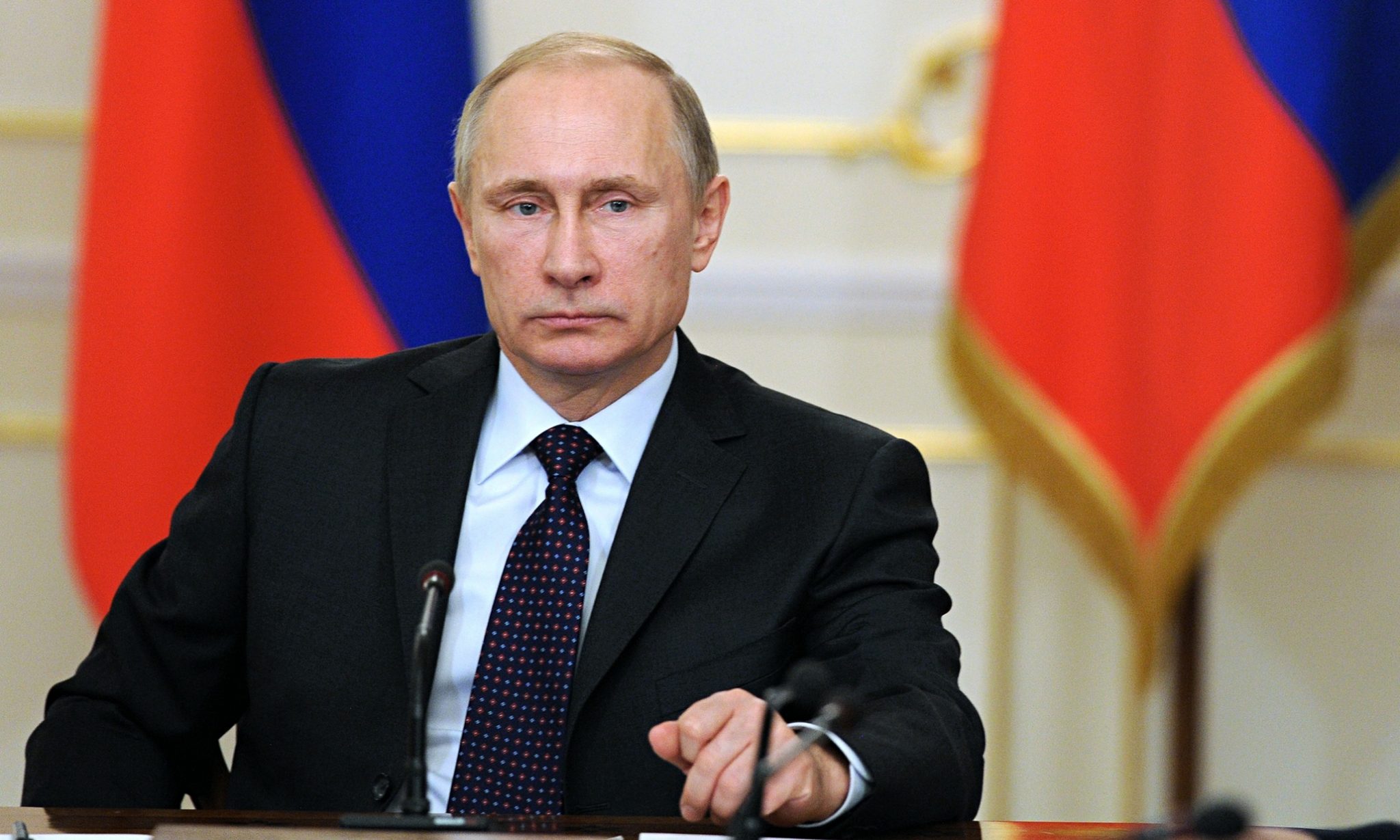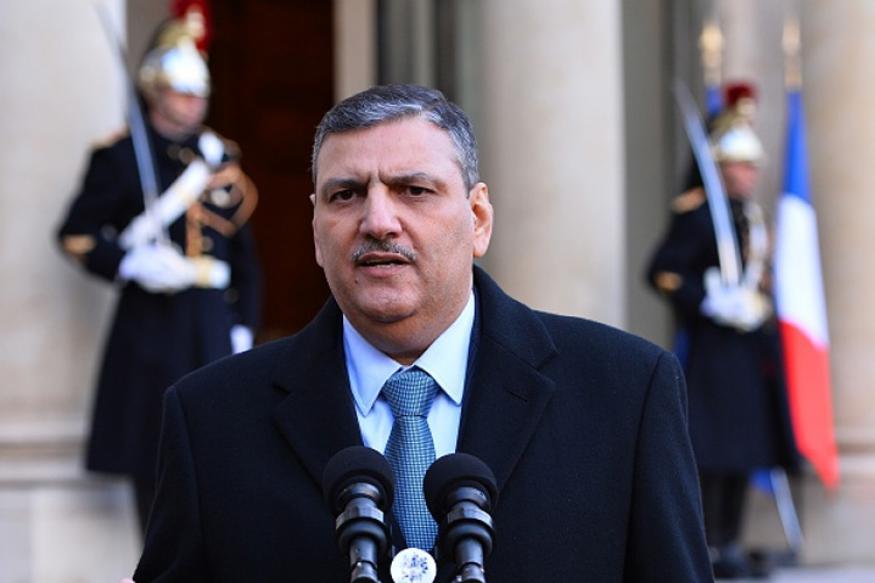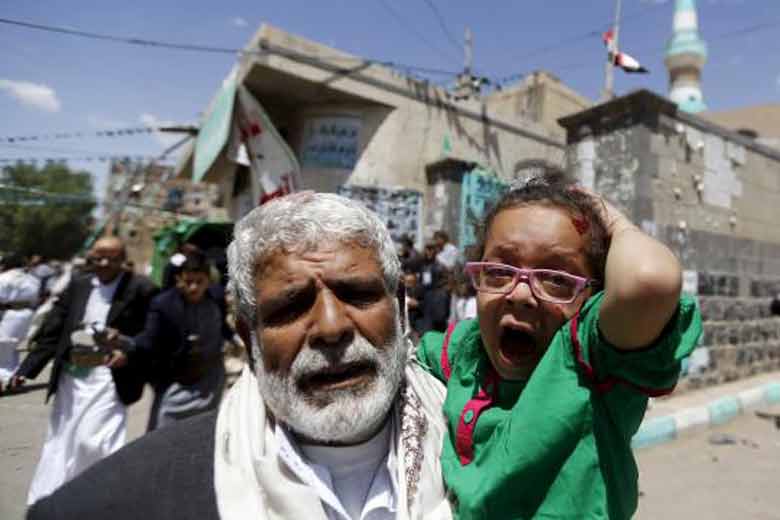
When President Trump arrives in Riyadh this week, he will lay out his vision for a new regional security architecture White House officials call an “Arab NATO” to guide the fight against terrorism and push back against Iran, according to the Washington Post.
Washington Post also reported that “As a cornerstone of the plan, Trump will also announce one of the largest arms-sales deals in history.”
Final details about the arms sales are still being worked out, but officials said the package will include between $98 billion and $128 billion in arms sales. Over 10 years, total sales could reach $350 billion.
In the same context, Debka File, an Israeli military intelligence website, also stated that President Donald Trump and Saudi King are reported by Gulf sources to be planning to announce the establishment of an Arab-Muslim alliance among the 17 rulers invited to attend a summit with the visiting US President on May 22.
The invitees include the members of the Gulf Cooperation Council, Jordan’s King Abdullah, the Moroccan King Muhammad, the Presidents of Algeria and Tunisia and Iraqi Prime Minister Haydar al-Abadi.
Abdel Fattah Al-Sisi has decided to give the Riyadh summit a miss, barring a last-minute change.
Debka File intelligence sources cited observers in the Gulf saying that the summit is designed to mark the expansion of defense relations between the US and moderate Arab and Muslim nations for a combined war on the Islamic State.
The idea of an “Arab NATO” has been discussed for years— and has always had strong Saudi support — but until now was never openly endorsed by the U.S. government.
Officials said the concept fits three major tenets of Trump’s “America First” foreign-policy frame: asserting more American leadership in the region, shifting the financial burden of security to allies and providing for U.S. jobs at home (through the massive arms sales).
According to WP, Trump is looking for an answer to the question of how the United States can eventually hand over security responsibility in the region to the countries that are there, officials said.
Reports from the region about early discussions of the project said that in addition to Saudi Arabia, initial participants in the coalition would include the United Arab Emirates, Egypt and Jordan, with the United States playing an organizing and support role while staying outside the alliance.
In addition, regarding the large scale arms sales deals with Saudi Arabia, Anthony Cordesman of the Center for Strategic and International Studies said,”The U.S. has sought for a long time to get the Saudis to do more to focus on its navy, to modernize and make the forces in the Gulf more effective.”
He added,”From the U.S. perspective, the stronger the Saudi deterrent is, the lower the risk of any military confrontation with Iran.”
On the other side, Tehran accuses the US and Saudi leaders as promoting this plan to cover their real purpose which is not to fight ISIS but the Shiites in Iran, Iraq and Syria (the ruling Alawites) and Hezbollah in Lebanon.
Iran’s Tabnak News Agency has warned that President Trump’s planned trip to Riyadh and his meeting with Saudi and other Arab leaders will set the stage for a Sunni Arab-US alliance to counter Iran’s influence in the region.
“Iran now claim that the role Trump assigns the Jewish state is that of supplier of intelligence for the new Sunni Arab army,” said Debka file.
“The pending announcements of the new security framework and the huge arms deal are evidence that the Saudi courtship of the Trump White House has been successful beyond expectations,”according to WP.
It added,”Whether that results in real stability in the region, real progress against terrorism or real deterrence against Iran depends on what happens after Trump’s overseas trip is over.”



